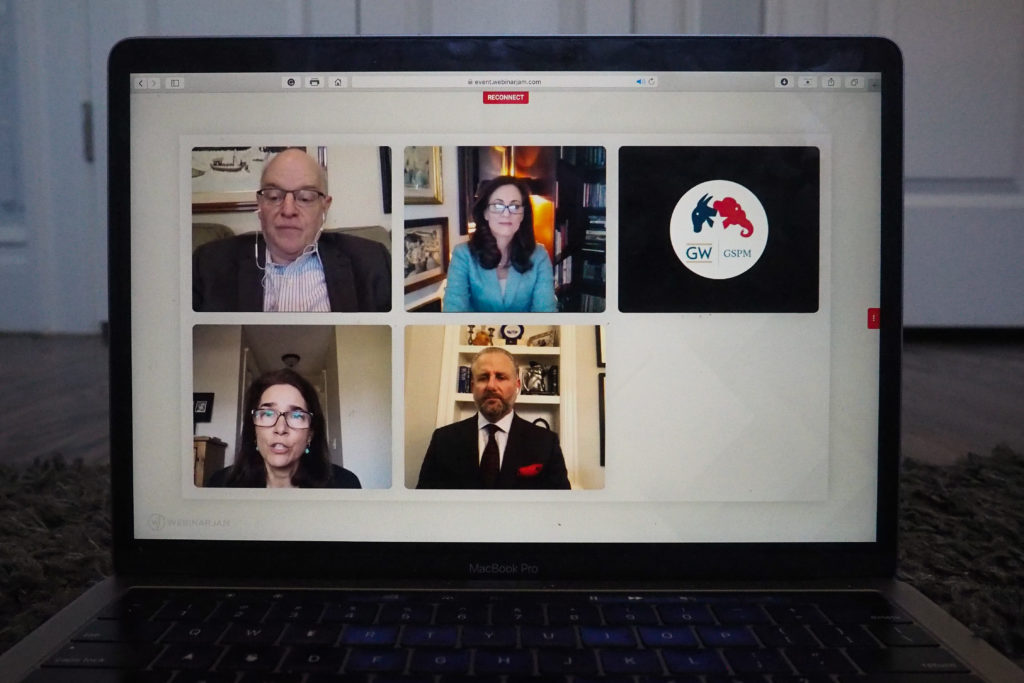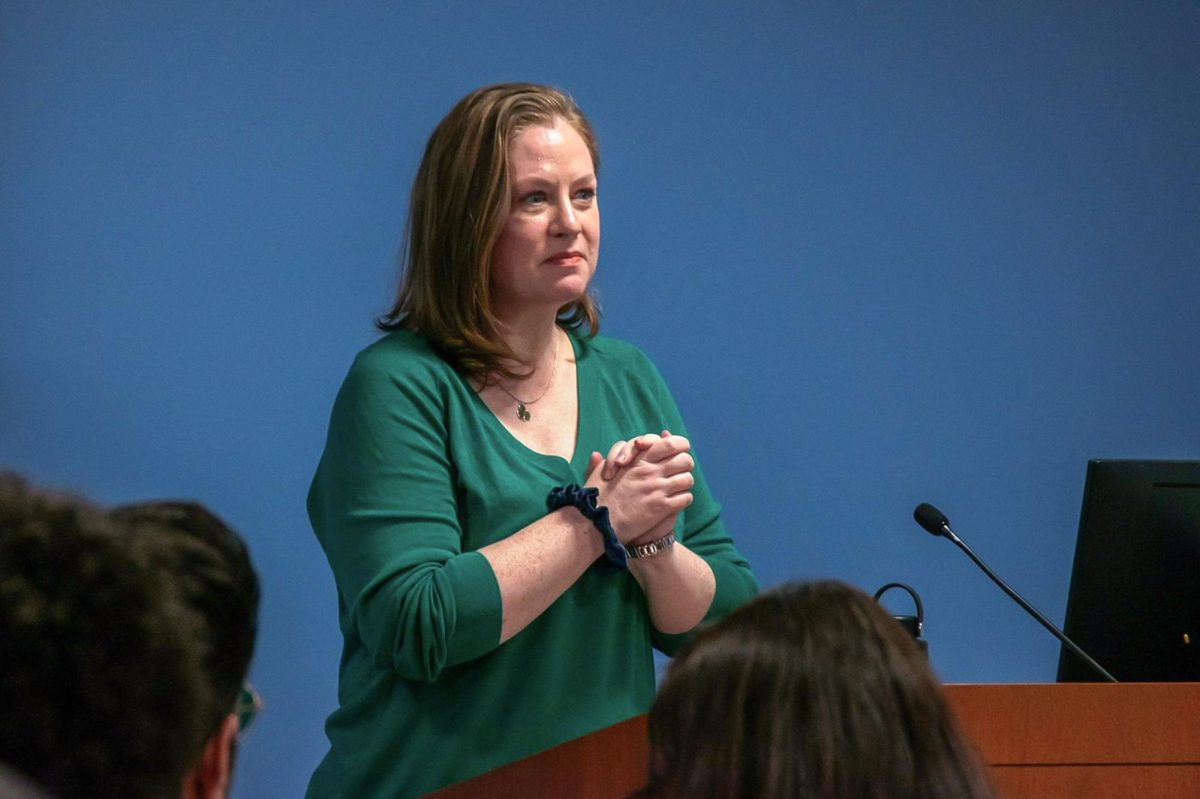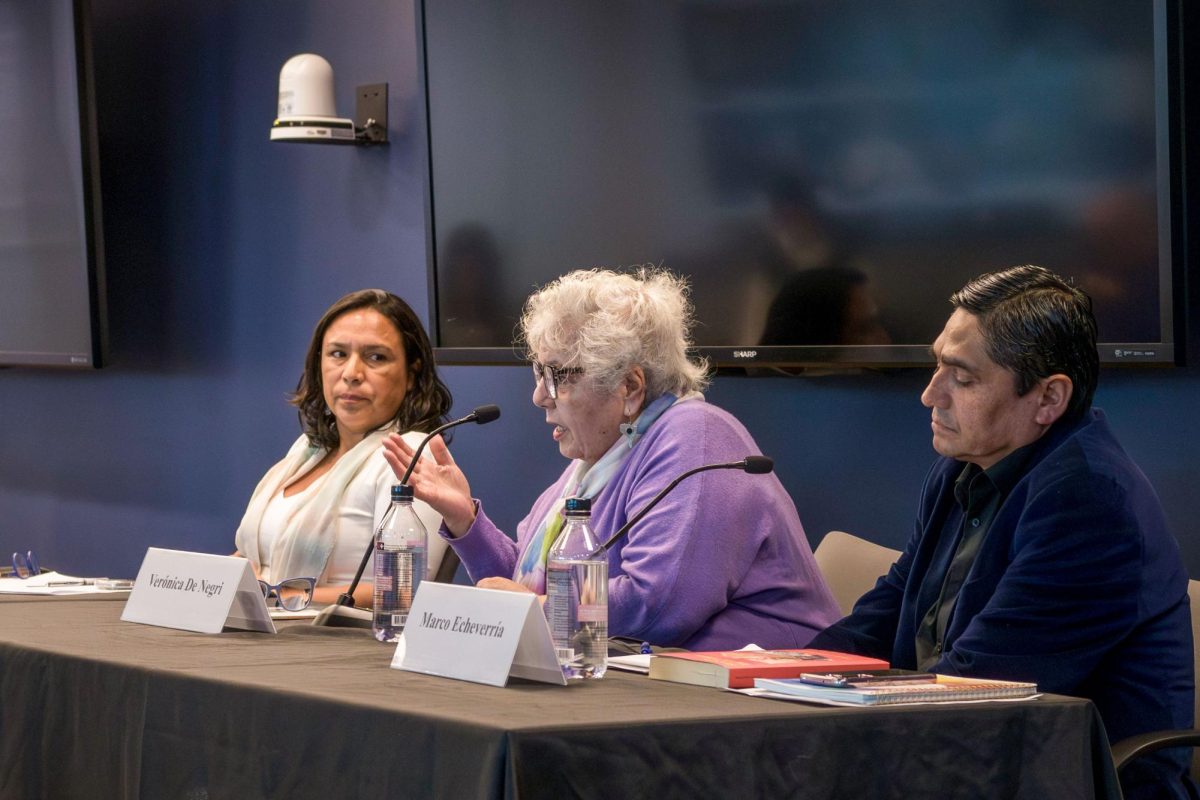Political and journalism experts discussed and analyzed the meaning of the results of the 2020 U.S. presidential election Thursday.
Two professors from the Graduate School of Political Management and two political journalists from the Washington Examiner covered topics like the Democrats potentially not taking control of the Senate, exit poll results and the overall division of the country throughout the election. Daniel Parra, a GSPM media relations specialist, moderated the event, which GSPM hosted.
Here are some of the key topics they discussed:
Democrats’ standing in the Senate
Susan Ferrechio, a senior congressional correspondent for the Washington Examiner, said Republicans were expected to be trailing behind the Democrats for the Senate but so far have “outperformed” previous polls and are at the “top of the ticket.” She said Republicans will most likely make up a majority in the new body of senators, making it “less likely” for policies regarding climate change and health care to be addressed.
“Without a Democratic majority in the Senate, it slows everything down,” she said. “So even if Joe Biden ends up in the White House, you aren’t going to have this trifecta, which is the green light that lets Congress and the White House pass things while they have total control.”
David Drucker, a senior political correspondent for the Washington Examiner, said it is difficult to “draw a definitive conclusion” about the Senate’s makeup even as Republicans are “very likely” to hold onto their majority.
“But I think what we’re trying to figure out from this election – and it’ll be easier once the count is final, where we can then look at exit polling and post election polling – is how the different parties showed up, where they showed up, where the candidates were able to increase their share of the votes and among who, and how that influences the coalition of the parties going forward,” he said.
Exit polls
Ferrechio said the coronavirus pandemic had a “huge impact” on the race, as people are “worried” about the economy, schools being closed, losing their jobs and getting sick. She said all of these things are “visceral” and affect voters’ decisions a lot more than climate change or anything else that doesn’t have a direct impact on people.
“The most important thing to voters when they go to the polls is how life is treating them,” she said.
Michael Cornfield, an associate professor of political management, said two-thirds of Americans know someone who has tested positive for COVID-19, but the exit polls show the economy was, by a “large margin,” the number one issue for voters.
“Even with health care at 10 percent and the virus at 17 percent and combining them, you still get 27 percent, which is still lower than the exit poll numbers for the economy that was at 35 percent,” he said.
Lara Brown, the director of GSPM, said she agreed with Cornfield at the level of concern on issues impacting voters shown in the exit polls, but the “reality” of exit polls is that they are limited in predicting the final electoral outcome.
“We are going to see those exit polls kind of getting corrected so that they are statistically appropriate once the entire count is final,” she said.
The upcoming divided government
Brown said there were “very few” split tickets in which a voter selects a candidate from one party for president and one of another party for lower posts, showing the United States “remaining” a country divided.
“But I think that there may be some opportunities and some incentives for a President Biden to actually push back on the progressive left, which had he won the majority, he might have been not able to do,” she said.
Ferrechio, the congressional correspondent, said the House of Representatives might take up an expansion of Obamacare, campaign finance reform and environmental legislation, but the Senate will “ignore” those issues.
“That’s what has become of our government,” Ferrechio said. “If you keep that in mind as a governing factor and overlay it on everything Congress does, it’ll help you understand what they do in the off years, which is what we’re about to enter.”








